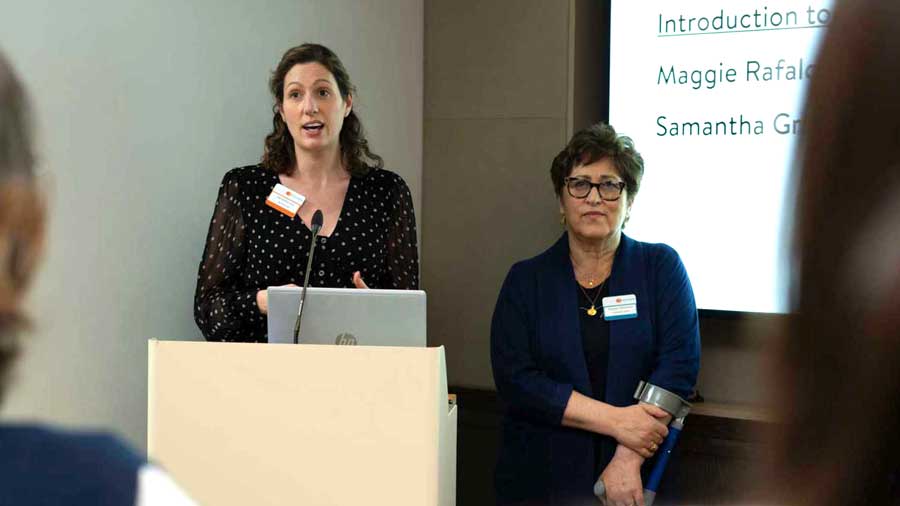Image: Istock
Transforming temporary accommodation
A new programme aims to make temporary accommodation a short, safe and healthy experience

GROWTH, REGENERATION & DEVELOPMENT

Christa Maciver
Director of Campaigns and Social Change, Justlife Foundation

Christa Maciver
Director of Campaigns and Social Change, Justlife Foundation
Issue 78 | June 2025
We are living through so many concurrent crises that it can be hard to keep up. Some are more visible than others. The crisis of temporary accommodation (TA) is one of the least visible, where those who are stuck there are homeless and hidden from public view in B&Bs, hostels and other “short-term” accommodation.
Our inspiration
Justlife has been working with people in temporary accommodation since 2011, when a friend of our founder tragically lost his life while living in a B&B in east Manchester.
At the time, other residents told us that their situation was (with a shrug of their shoulders) “just life”. Bullying? Just life. Coercive management practices? Just life. Living in a B&B for 20 years? Just life.
No one seemed to care if they lived or died. This is how Justlife was born, out of the hopeless shrugs of single homeless men living in B&Bs. They deserved more than the depressing acceptance of a life devoid of hope.
Over the years, Justlife has grown into an organisation with frontline services in Manchester and Brighton, as well as systems change collaborations and political advocacy initiatives with Temporary Accommodation Action Groups, and as co-secretariat (with Shared Health Foundation) of the All Party Parliamentary Group for Households in TA.
During this time, the number of people living in temporary accommodation has exploded. The latest government statistics reported more than 127,000 households and 165,000 children are living in temporary accommodation – the highest numbers on record.
households are currently living in temporary accommodation
children are currently living in temporary accommodation
temporary accommodation contributed to the death of 74 children over a five-year period
“Thousands of people are trying to survive in poor and unsuitable accommodation that is detrimental to their lives.”
Deteriorating standards
As demand has risen, experiences and standards in temporary accommodation have deteriorated. Our work on the APPG for Households in TA lays bare the horrendous conditions that make temporary accommodation a safeguarding issue.
Thousands of people are trying to survive in poor and unsuitable accommodation that is detrimental to their lives. Their stays are often years long and many suffer with worsening mental and physical health. Others face a heightened risk of crime, a loss of control over their lives and even premature death. Temporary accommodation contributed to the deaths of at least 74 children over a five-year period.
How can this be? The sector is under enormous pressure to deliver more with less, leaving those with the best intentions often struggling to stay afloat. The current environment puts an enormous strain on public and private finances and makes problem solving and innovation incredibly difficult.
Local authorities and the wider homelessness sector currently lack the time, space and resources to creatively develop and rigorously test long-term solutions to the challenges of temporary accommodation, specifically with the aim of ensuring the experiences of homeless households are short, safe and healthy. As a result, temporary accommodation has long since failed to be the short-term respite it was intended to be.
The mission
With this in mind, we will be launching our Transforming Temporary Accommodation Programme before the end of this month. It will include a funding programme for three testing hubs across the UK to design evidence-based solutions to temporary accommodation that look beyond simply reducing the cost on local authorities, to improving the lives of the vulnerable households living in this situation.
We are excited to be able to provide the breathing space needed for creative and robust testing of ideas, big or small, that can help move the dial on the temporary accommodation crisis.
Sadly, there will always be a need for a safety net like temporary accommodation when all other forms of homelessness prevention have been exhausted. However, we must ensure that safety net never compromises the health and wellbeing of the vulnerable people who rely on it.
“It will include a funding programme for three testing hubs across the UK to design evidence-based solutions to temporary accommodation that look beyond simply reducing the cost on local authorities.”

